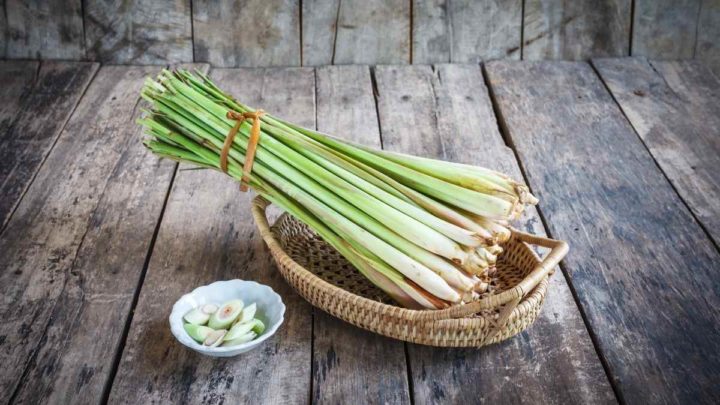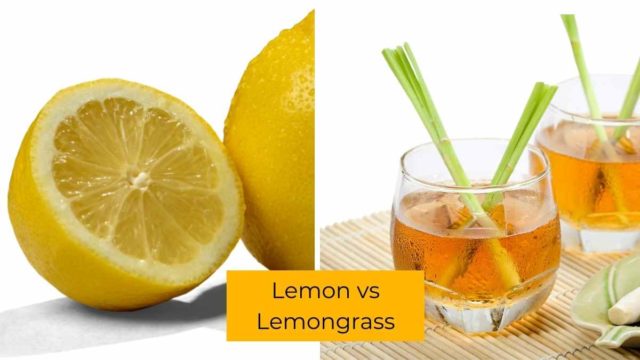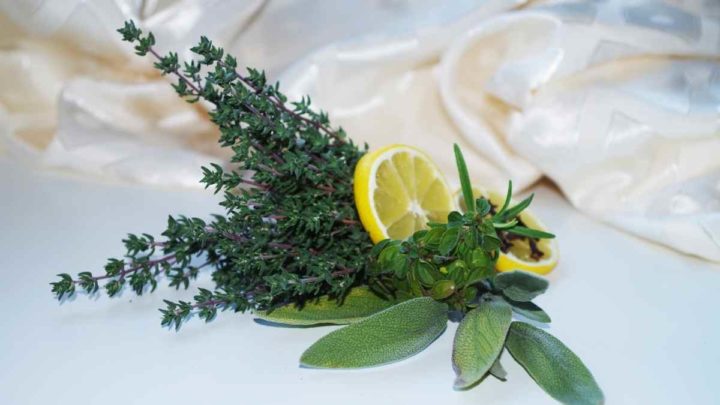Lemon vs Lemongrass

Lemon juice is one of my favorite things to drink. It’s refreshing and delicious! But did you know that it also helps keep your teeth healthy? On the other hand, Lemongrass has a wonderful citrusy scent and is great for cooking. It’s also used in many different types of herbal medicine, including essential oils.
So, this article is for you if you are interested in the differences between lemon and Lemongrass in terms of properties, uses taste, and health benefits.
You may also be interested in
- What Can I Substitute for Noodles
- Salumi vs Salami
- What Is the Best Substitute for Watercress
- Caramel Sauce vs. Syrup
What Is the Difference Between Lemon and Lemongrass
Lemon is a citrus fruit that has a sour taste. The best-known variety is the Meyer lemon, which originated in California. Other varieties include Eureka, Lisbon, and Kent. The lemon fruit is round or oval-shaped with orange color skin and yellow flesh inside. It grows on trees and can be found from June through October.
Lemons have been cultivated since ancient times because they are very useful for both culinary and lemon essential oil for medicinal purposes. They were first mentioned in Egyptian hieroglyphics. In Chinese culture, they were considered sacred. Ancient Greeks believed that drinking lemon water could cure diseases like fever and headaches.
Meanwhile, lemongrass or lemongrass stalk comes from a Cymbopogon citratus plant, which is a fragrant herbaceous perennial plant native to tropical regions. Its leaves are long, slender, and hollow. The stalks grow up to 1 meter tall and can reach 2 meters wide. The most common type of Lemongrass is called citronella lemongrass (Cymbopogon nardus). It has a strong aroma and flavor.
The word “lemongrass” comes from the Malay language. It means “to smell good”. Lemongrass was originally grown as a food crop by farmers. Today, it is mainly used as an aromatic ingredient in cooking, herbal medicine, and essential oils.

Can I Substitute Lemongrass for A Lemon Essential Oil?
Yes! If you want to use lemongrass instead of lemon essential oil, just add 5-10 drops of lemongrass essential oil to your favorite carrier oil (such as coconut oil) and massage on your skin.
What Are the Properties of Lemon vs Lemongrass
Lemon
A few of the most essential properties of lemon are:
- Antimicrobial Properties
Lemon juice has antibacterial effects, according to studies. According to studies, Lemon juice has been utilized to disinfect drinking water and inactivate the rabies virus. Aspergillus mold can be stopped by lemon juice, and it’s been used to disinfect water and destroy the rabies virus.
Lemon juice’s property of breaking down bacteria cell membranes appears to be linked to its citric acid content, which can dissolve cell membrane proteins.
- Low pH Level
Lemon juice’s low pH is one of its most significant chemical properties. Lemon juice has a slightly alkaline pH level of 2, which is just below stomach acid on the pH scale. Lemon juice’s high acidity and concentration of hydrogen ions mean it has a strong acidic effect.
Like other acidic substances, Lemon juice has a sour taste and can corrode metals. Its corrosive qualities make it an effective cleaning ingredient since it softens the minerals in hard water, allowing cleaning chemicals to operate more effectively.
- High Amount of Vitamin C
Vitamin C is a powerful antioxidant that helps prevent free radical damage to cells. Lemon contains a lot of vitamin C, twice as the oranges. A 100 gram serving of fresh lemon provides about 60 percent of your daily recommended amount of vitamin C.

Lemongrass
- Antioxidant Properties
Lemongrass leaves contain quercetin, a flavonoid with antioxidant and anti-inflammatory properties. Quercetin inhibits cancer cell growth and heart disease by reducing inflammation.
- Anti-inflammatory Properties
According to a 2014 study from the Libyan Journal of Medicine, lemongrass essential oil has strong anti-inflammatory effects in mice with fungal infections. The researchers said that while further research in humans is needed, lemongrass essential oil may help with skin irritation in the future.
- Antifungal Properties
Essential oil from Lemongrass has topical antifungal properties. Though more research has to prove this, topical application of lemongrass essential oil showed an effective treatment for skin conditions, such as allergies or infection caused by fungi contact.
What Are the Taste of Lemon vs Lemongrass
Lemon
Lemon fruit tastes tangy, sour, and citrusy. It has a mild sweetness and a tartness that makes it refreshing and delicious. Since it is too sour, it is not meant to be eaten alone but to enhance flavors in food and drinks like salads and juices. It is also a common ingredient in Asian dishes, such as the famous Chinese lemon chicken.
Lemongrass
Fresh Lemongrass tastes the best. It has a very distinct flavor, similar to ginger root. It has a sweet, spicy, and herbaceous aroma. It is commonly used in Thai cuisine and Vietnamese cooking. It is also often added to soups and stews for its distinctive flavor.

What Are the Nutrient Contents of Lemon vs Lemongrass
Lemon
Lemon contains a lot of nutrient content that our body needs. According to the USDA National Nutrient Database, 100 grams of raw lemon contain:
- 92.3 g water
- 22 kcal energy
- 91 kJ energy
- 0.35 g protein
- 0.24 g total lipid (fat)
- 0.3 g total dietary fiber
- 103 mg Potassium
- 8 mg Phosphorus
- 6 mg Magnesium
- 38.7 mg total ascorbic acid (vitamin C)
And more! If you want to check out the complete information, check it out from the U.S Department of Agriculture.
All these nutrient contents are essential for the body to function well, especially in treating sore throats, colds, flu, coughs, etc.
Lemongrass
The nutrient content of Lemongrass is also way different than that of lemon. 100 grams of Lemongrass only have:
- 70.6 g water
- 99 kcal energy
- 414 kJ energy
- 1.82 g protein
- 0.49 g total lipid (fat)
- 723 mg Potassium
- 101 mg Phosphorus
- 60 mg Magnesium
- 2.6 mg total ascorbic acid (vitamin C
And more! If you want to check out the complete information, check it out from the U.S Department of Agriculture.
So which one do you prefer? Which one would you eat first when you feel sick? Well, both of them have their own benefits and nutrients, so choose which one suits your needs.
What Are the Uses of Lemon vs Lemongrass
There are thousands of ways to use lemon, especially in food. But today, here are the top health uses of lemons that you can do:
Lemon
It can act as a natural remedy for many health problems. Here are some of the uses of lemon:
- Coughs
Lemon juice mixed with honey can relieve coughing. You should drink 1 tablespoon of lemon juice mixed with 1 teaspoon of honey every time you have a dry throat. This will help clear up your mucus and make you feel better faster.
- Toothache
If you have toothaches, try using lemon juice on your teeth. Mix 2 tablespoons of lemon juice with a little bit of salt. Then rinse your mouth with warm water after 10 minutes. The citric acid in the lemon helps kill bacteria and reduce inflammation.
- Cold Sore Throat
If you have a sore throat, mix 4 tablespoons of lemon juice with 2 teaspoons of honey. Drink this mixture three times per day until you get relief.
- Household uses
Remove bad odor in the kitchen or food by rubbing or placing used fresh lemon or lemon oils. It can also remove stains bromine, chlorine, and other chemicals from fabrics and grease from clothing and shoes. Just rub the lemon juice directly onto the stain and let sit for 15-20 minutes before washing.
Lemongrass
Just like lemon, Lemongrass can also be used in different ways. Thai dishes use Lemongrass as an essential ingredient in green curry, Pad Thai, and Tom Yum Goong. But below are the health uses of Lemongrass that you can apply:
- Headache
Mix 3 drops of lemongrass oil with 1 drop of lavender oil. Put the mixture into a small bottle and keep it at room temperature. Use it once a week to treat headaches.
- Calming tea
Make a calming tea by boiling 6 cups of water with 1 cup of dried lemongrass leaves. Let the tea cool down completely before drinking.
- Improving oral health
Some cultures use lemongrasses for oral hygiene purposes. They’re chewed after brushing teeth to help prevent tooth decay and gum disease. Lemongrass is an herb that inhibits bacterial growth. Bacteria that can cause cavities are inhibited by Lemongrass.
Frequently Asked Questions
Which is better lemon or lemongrass essential oil?
Both are great since they have their own benefits. However, if you’re looking for something specific, then go for lemongrass essential oils because it has antibacterial properties that can fight against bacteria that cause colds and flu.
Does Lemongrass smell like lemons?
No. Lemongrass smells like citrusy scents such as orange and grapefruit, while lemon smells like citrusy and a sour aroma.
Is Lemongrass considered citrus?
Lemongrass or lemongrass plant is not considered citrus but rather a member of the mint family. Citrus fruits contain Geranial and Neral, two aldehyde compounds that give them their scent.
